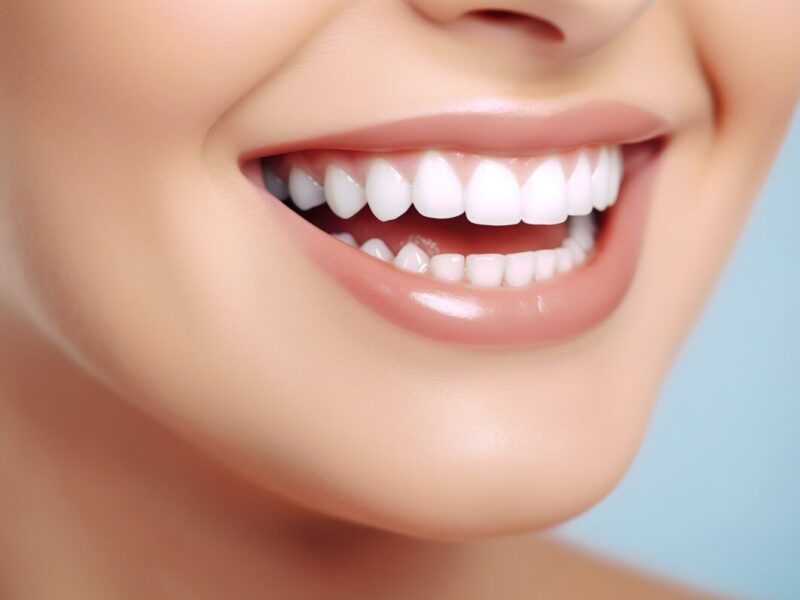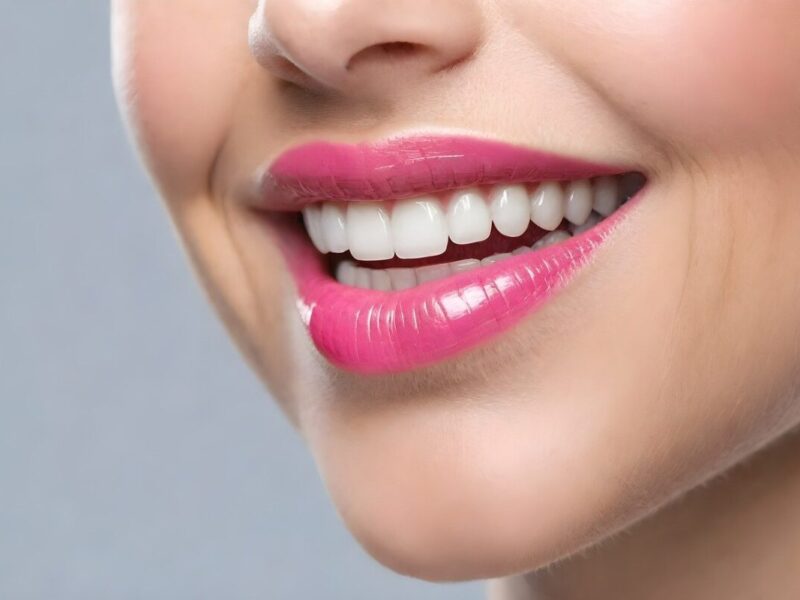Downsides of Dental Veneers
Choosing dental veneers can be a big decision for anyone looking to improve their smile. This article explores downsides of dental veneers, providing essential insights for those considering this popular cosmetic treatment. It’s crucial to be fully informed about both the benefits and the drawbacks before making a choice.
Your Cosmetic Dentist in Brisbane aims to help you understand what to expect, ensuring you feel confident and supported in your dental decisions. Let’s explore together the key aspects to consider, ensuring your journey towards a brighter smile is as informed as possible.

What You Need to Know Before Choosing Veneers
If you’re thinking about getting veneers to enhance your smile, you’re on the right track to achieving the look you desire. Veneers are thin covers that dentists put on the front of your teeth to make them look better. They can really transform how your teeth look, making them appear straighter and whiter.
What Are Dental Veneers?
Dental veneers are thin, custom-made shells designed to cover the front surface of teeth to improve their appearance. They are typically made from porcelain or resin composite materials and are permanently bonded to your teeth.
How Long Do Dental Veneers Last?
On average, porcelain veneers can last between 10 to 15 years, while composite resin veneers tend to have a shorter lifespan of around 5 to 7 years. The lifespan can vary based on factors like oral hygiene practices, materials used, and your lifestyle.
Can Dental Veneers Stain?
Porcelain veneers are highly resistant to staining due to their smooth, glazed surface. However, composite resin veneers are more prone to staining over time. It’s important to maintain good oral hygiene and regular dental check-ups to keep your veneers looking their best.
Are Dental Veneers Reversible?
No, veneers are considered a permanent procedure because a portion of the original tooth enamel is removed to fit the veneer. Once this enamel is removed, it cannot be replaced, making the process irreversible.
Do Dental Veneers Damage Your Teeth?
The process of applying veneers involves removing a small amount of the tooth’s enamel, which does not typically damage the tooth. However, because this process is irreversible, it is important to consider the long-term implications and care requirements.
What Are the Downsides of Dental Veneers?
Dental veneers can transform your smile, offering a brighter, more uniform look. However, it’s important to consider the full picture before deciding, as there are several factors that might not make them the perfect choice for everyone.
The Irreversible Nature of Veneers
Getting veneers means your teeth need to be prepared, which involves removing a thin layer of enamel. This step is crucial for the veneers to fit well, but it also means you can’t go back to just having your natural teeth without veneers. Because of this, you might need to replace them down the line if they wear out or get damaged. It’s a commitment to ensure your teeth look their best, but it is one that doesn’t come without its need for future consideration and potential adjustments.
Facing Sensitivity Issues
After getting veneers, some people find their teeth become more sensitive to hot and cold. This happens because removing the enamel exposes the more sensitive parts of your teeth. While this sensitivity often reduces over time, it can be a bit of a hassle at first. The good news is that there are ways to manage this sensitivity, and your dentist can give you tips on how to reduce discomfort.
Risk of Damage
Veneers are strong, but they’re not indestructible. They can chip or crack if you’re not careful, especially when eating hard foods or if you have habits like grinding your teeth at night. It’s important to be mindful of how you treat your veneers to avoid damage. Plus, fixing damaged veneers might mean replacing them, which adds to the overall care and cost.
Not a Solution for Everyone
Not everyone is a suitable candidate for veneers. If you have significant dental issues, like severe decay or gum disease, these need to be addressed before you can consider veneers. Also, if you don’t have enough enamel on your teeth, veneers may not be the best option for you. The process also requires a healthy commitment to oral hygiene to ensure the longevity of your veneers. It’s best to have a thorough discussion with your dentist to see if veneers are right for you.
Maintenance and Replacement
Veneers need care similar to your natural teeth, including regular brushing, flossing, and dental check-ups. Despite being durable, they won’t last forever and will likely need replacing after 10 to 15 years. This means considering the long-term cost and commitment to maintaining them. Good oral hygiene practices are key to extending their life.
Colour Mismatch
Over time, your natural teeth can change colour, but your veneers will stay the same shade they were when fitted. This can lead to a mismatch in colour between your veneers and the rest of your teeth, particularly if you enjoy foods and drinks that stain teeth. While veneers are resistant to staining, this difference may become noticeable. Choosing the right shade from the start is important, but understand that maintaining a perfect match might require additional dental work. Regular cleanings and possibly whitening treatments for your natural teeth can help manage this issue.
No Room for Error
Once veneers are applied, making adjustments to their appearance isn’t straightforward. If there’s something you don’t like about them after they’re on, correcting it often means replacing the veneer entirely. This process demands precision from your dental team and clear communication about your expectations. Mistakes can be costly and inconvenient to fix, so it’s crucial to get it right the first time. Ensuring you and your dentist are on the same page regarding the desired outcome, is essential.
Gum Tissue Response
Some people find that their gums react to the materials used in veneers, leading to discomfort or inflammation. While this reaction is usually temporary, it can be uncomfortable and affect the overall appearance of your smile. One of the downsides of dental veneers includes this potential for gum tissue response, emphasizing the importance of considering all aspects of the procedure. Proper fitting and placement by an experienced dentist can minimize this risk, but it’s something to be aware of. Good oral hygiene can also help manage and mitigate gum sensitivity or inflammation. It’s important to monitor your gum health and communicate any concerns to your dentist.
Cost Consideration – Another Downside of Dental Veneers
Veneers can be a significant financial investment, with the cost depending on various factors like the material used and the number of teeth being treated. They are often seen as a cosmetic procedure, meaning insurance might not cover the cost. One of the notable downsides of dental veneers is the need for financial planning due to these costs. Considering this investment’s long-term aspects, including potential replacements, is important. Budgeting for the initial procedure and future maintenance or updates is crucial for anyone considering veneers. Discussing all costs upfront with your dentist can help you plan and avoid surprises.

Can You Get Veneers if You Have Gum Disease or Tooth Decay?
Dental issues such as gum disease or tooth decay need to be treated before veneers can be applied. Healthy teeth and gums are crucial for the success and longevity of veneers.
How Do You Take Care of Dental Veneers?
Care for veneers much like your natural teeth: brush at least twice a day, floss daily, and visit your dentist regularly for check-ups and cleanings. Avoid using your teeth to open packaging or biting down on hard objects to prevent damage.
Can You Whiten Dental Veneers?
One of the notable downsides of dental veneers is their permanence in colour. You cannot whiten veneers with traditional teeth-whitening products or treatments. If you want to maintain a bright smile, it’s important to select the right shade of veneers from the beginning and keep your surrounding natural teeth clean and white.
What Is the Difference Between Porcelain and Composite Resin Veneers?
Porcelain veneers offer a more natural and translucent appearance, are more durable, and resist stains better than composite resin veneers. Composite resin veneers can be applied in a single visit and are less expensive but have a shorter lifespan and are more prone to staining.
Is It Time to Reconsider? Connect with Pure Dentistry
Embrace the opportunity to transform your smile with confidence at Pure Dentistry. We’re dedicated to offering you a personalized consultation, where we’ll discuss your dental goals, address any concerns, and assess the suitability of veneers for your unique smile. With a commitment to comprehensive evaluations, our team ensures you have all the information needed to make informed decisions about your dental health. Partner with Pure Dentistry today for expert guidance on your journey to a brighter, more confident smile. Reach out to us by calling 07 3343 4869, and let’s take the first step together.




































